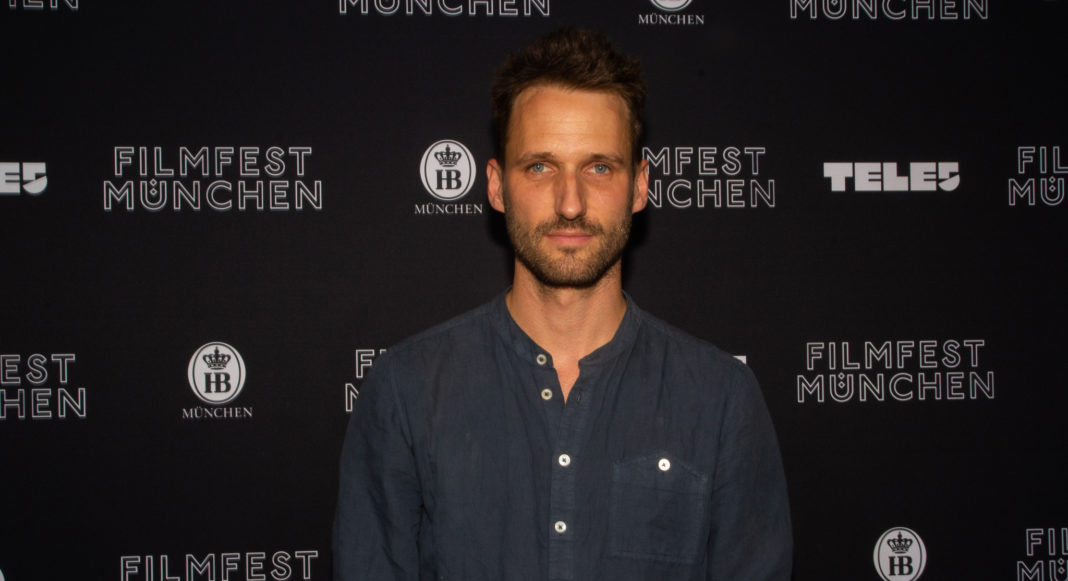In 2014, instructor and second lieutenant Charles Eismayer married Captain Mario Falak. A film about the life of Charles Eismayer is now being planned and will be directed by David Wagner. The Viennese filmmaker is also responsible for the concept and screenplay. We spoke to him.
Mr. Wagner, how did the idea for the film come about?
In 2014, I published an article in an Austrian daily newspaper (see report) I read an article about the wedding of Charles Eismayer and his then partner and later husband Mario. Because I was also in the army, the name Eismayer was already familiar to me at that time and I was also a little afraid of this name because of the strictness that was repeatedly attributed to Charles Eismayer as an instructor. At the time, I even had the feeling that it was a fictional character. If you don’t experience something yourself, myths or fairy tales arise very quickly. In any case, I was extremely fascinated by his story and this fascination soon gave rise to the idea that it would make a great movie. So it’s an idea that has been with you for a very long time ...
That’s right – actually since I read the article in the daily newspaper in 2014. But then I moved to Hamburg because of my studies at the film school there and forgot about the story again. Until one day, during my studies, I was given the task of writing down an idea for a feature film in a very short space of time. That’s when the idea came back to me and I really put it down on paper for the first time. My directing lecturer pretty much lost it because he was so enthusiastic about the story. Back in Vienna, I then applied for a scholarship with my idea and was accepted. That’s when everything started rolling.

Did you talk to Vice Lieutenant Eismayer beforehand? What does he think of your project?
If you want to tell the story of a homosexual instructor in the army, you almost can’t avoid bringing the name Eismayer into play. If you wanted to do it differently, you would have to alienate the character in such a way that you never get to the real person. But I didn’t want to go down that route, so the very first thing I did was to make contact with Charles Eismayer and his husband Mario, and I met them several times for long conversations. So I got them on board right from the start. Mainly because I wanted to make the movie as authentic as possible and really understand the essence of the story. And for that I need them on my side. So there will be a lot of things in this movie that really happened, but also passages that I made up.
So you didn’t have to do any convincing?
There was a little skepticism at the beginning, but they were basically curious and interested. Overall, I had the feeling the whole time that Charles Eismayer wanted his story to be seen and heard.
Did you also consult with the army?
There were no agreements in advance. However, as 80 percent of the film is set in the direct environment of the Austrian Armed Forces, we would of course welcome a cooperation. In no other medium can you experience an adventure as closely as in a movie. With this film, I want to bring the audience into the Armed Forces with heart and soul and let them experience everything as authentically as possible. With the support of the Austrian Armed Forces, every detail would be right and coordinated with them. That would be a great mutual exchange and a win-win situation for all of us.
“I am very grateful to the armed forces that they are honestly interested in showing that all people are welcome here when it comes to homosexuality.”
When writing the script, do you already weigh up at which points and in which passages negative emotionsmightarise towards the project?
You can’t tell a story about the legendary Eismayer without it being rough at times. And I’m sure that there will be a lively exchange with the army in the run-up to the project. And that is important. Talks are currently underway and the script is in their hands. I am very transparent and grateful to the Armed Forces for being forward-looking and honestly interested in showing that all people are welcome here. The wedding also took place in the barracks, which is of course a sign of the Armed Forces’ support for one of their most passionate employees. This opening up, initiated by the Armed Forces themselves, should also appear in the film and this will put the image of the Armed Forces in a more modern and, for many, perhaps unfamiliar light. All in all, the film will surprise people and hopefully broaden their horizons.










